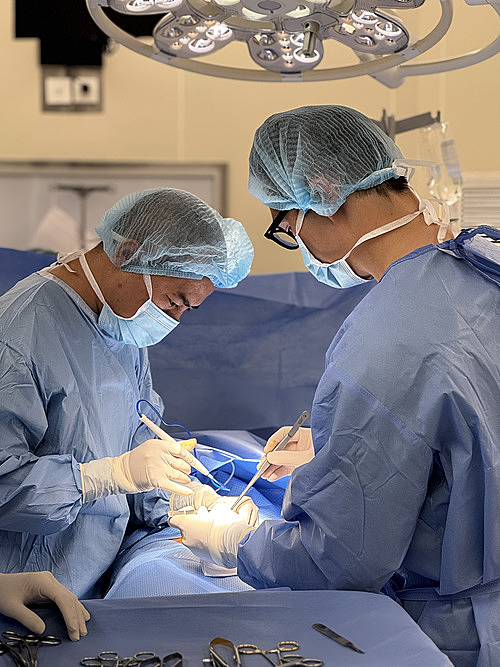According to Dr. Tra Anh Duy of Men’s Health, sympathectomy, or severing branches of the penile sensory nerves, can improve ejaculation time in some severe premature ejaculation cases unresponsive to other treatments. However, the risks of losing sexual sensation and developing erectile dysfunction make it unsuitable for widespread use.
Premature ejaculation is one of the most common sexual dysfunctions in men, estimated to affect 20-30% globally. The International Society for Sexual Medicine (ISSM) defines premature ejaculation as ejaculation within about a minute of penetration (lifelong PE), or abnormally short ejaculation time after a period of normal function (acquired PE), causing personal distress or relationship difficulties.
Ejaculation is controlled by the nervous system, particularly the sympathetic nervous system. Sexual stimulation triggers muscle contractions and the release of semen. Sympathectomy targets nerves in the penis and lumbar region, reducing sensitivity to prolong ejaculation time. Common techniques include dorsal penile nerve neurotomy and lumbar sympathectomy.
A study in the Journal of Sexual Medicine showed over 74% of patients undergoing selective dorsal nerve neurotomy experienced improved ejaculation time after 6 months, but 12% experienced reduced pleasure. Another study in Andrologia reported average ejaculation time increasing from 0.9 minutes to 3.1 minutes, but 20% of participants felt “no sensation during intercourse”.
Sympathectomy offers advantages like avoiding long-term medication, quick results if appropriately indicated, and potential psychological benefits for those frustrated with medical treatments. However, it carries risks, including loss or reduction of sexual pleasure, permanent nerve damage leading to erectile dysfunction, chronic pain from nerve scarring, and irreversibility if the outcome is unsatisfactory.
 |
Dr. Duy performs surgery on a patient. Photo: Hospital provided |
Dr. Duy performs surgery on a patient. Photo: Hospital provided
Experts and international recommendations emphasize that surgery is not a first-line treatment. The European Association of Urology (EAU) and ISSM recommend behavioral therapy and medication as initial treatments. Surgery should only be considered for patients with severe lifelong PE (under 30 seconds) who have tried medical, behavioral, or psychological therapies for over a year without success and who understand and accept the risk of sensory loss. Due to the delicate nature of nerve surgery, it should only be performed at specialized centers with experienced teams and long-term follow-up.
Less invasive treatments for premature ejaculation are available. Behavioral therapies include the “stop-start” and “squeeze” techniques and breathing and relaxation exercises. Medication or topical anesthetic creams can also help. Psychological therapy can improve emotional awareness and control, particularly beneficial for cases related to performance anxiety or negative experiences.
Le Phuong












